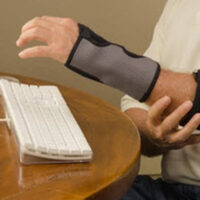What Injured Workers Should Know About Workers’ Comp and WFH

Before the pandemic, work from home was almost unheard of, even if the employee could work effectively from home. By December 2020, 70 percent of these workers said they were working from home. Most added they’d like to keep it that way. Now that the pandemic is in our rearview mirror, the return-to-the-office push is in full swing, but the WFH revolution is permanent as well.
Traditionally, workers’ compensation didn’t cover work from home injuries or commuting-related injuries, like car wrecks. But COVID-19 changed pretty much everything. So, a Tampa workers’ compensation lawyer can now obtain benefits if employers are hurt while working from home. These benefits usually include lost wage replacement and medical bill payment.
Falls
60 percent of falls happen at home. Common hazards include loose rugs and uneven walkways. Furthermore, many people fall down the stairs. Some serious fall injuries include:
- Head Injuries: The motion of a fall, not the trauma impact, usually causes a head injury. As people fall, their brains slam against the insides of their skulls. When brain cells die, in this way or any other way, they don’t regenerate.
- Broken Bones: Like head injuries, broken bones are usually permanent injuries, at least to an extent. Doctors can use metal pins and screws to fuse bones and physical therapists can help people use their injured limbs again, but this use is limited forevermore.
- Internal Injuries: The same violent motion that causes head injuries also causes internal injuries. When these organs grind and mash against each other, since they don’t have protective skin layers, minor lacerations bleed badly and often uncontrollably.
A Tampa workers’ compensation lawyer can obtain maximum benefits even if a pre-existing or non-work-related condition contributed to the risk and/or severity of injury. The benefits cover both prior and future losses.
Usually, for workers’ compensation purposes, a fall anywhere at home is a work-related fall. If Bill falls in the bathroom at work, that’s just like a fall in his own bathroom if he’s working from home.
Repetitive Stress Injuries
Companies want to avoid the liability risks and safety inspection requirements that WFH imposes. Falls at home are a good example, and so are repetitive stress injuries at home.
Computer eyestrain is easy to prevent. People must simply take frequent breaks. But at home, there’s no one to enforce such a policy. Therefore, computer eyestrain is a common problem, especially if the victim works under the tight deadlines commonly associated with WFH.
Carpal tunnel syndrome is another common WFH repetitive stress injury. Once again, the physical work environment causes this injury. If people elevate their wrists above their elbows when they type, the carpal tunnel in the wrist collapses, pinching the nerve and causing a very painful injury.
When workers are in the office, bosses can see the impact of repetitive stress injuries. But when people work from home, many bosses believe workers are faking their injuries. Therefore, they don’t get the treatment they need, and their injuries get worse. Once again, full benefits are available in these situations. Benefits are based on the actual effects of injury.
Connect With a Hard-Working Hillsborough County Attorney
Injury victims are entitled to important financial benefits. For a free consultation with an experienced job injury lawyer in Tampa, contact Kobal Law. We do not charge upfront legal fees in these matters.
Source:
pewresearch.org/social-trends/2020/12/09/how-the-coronavirus-outbreak-has-and-hasnt-changed-the-way-americans-work/

